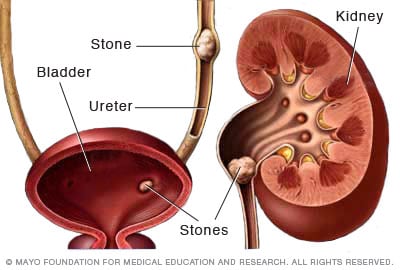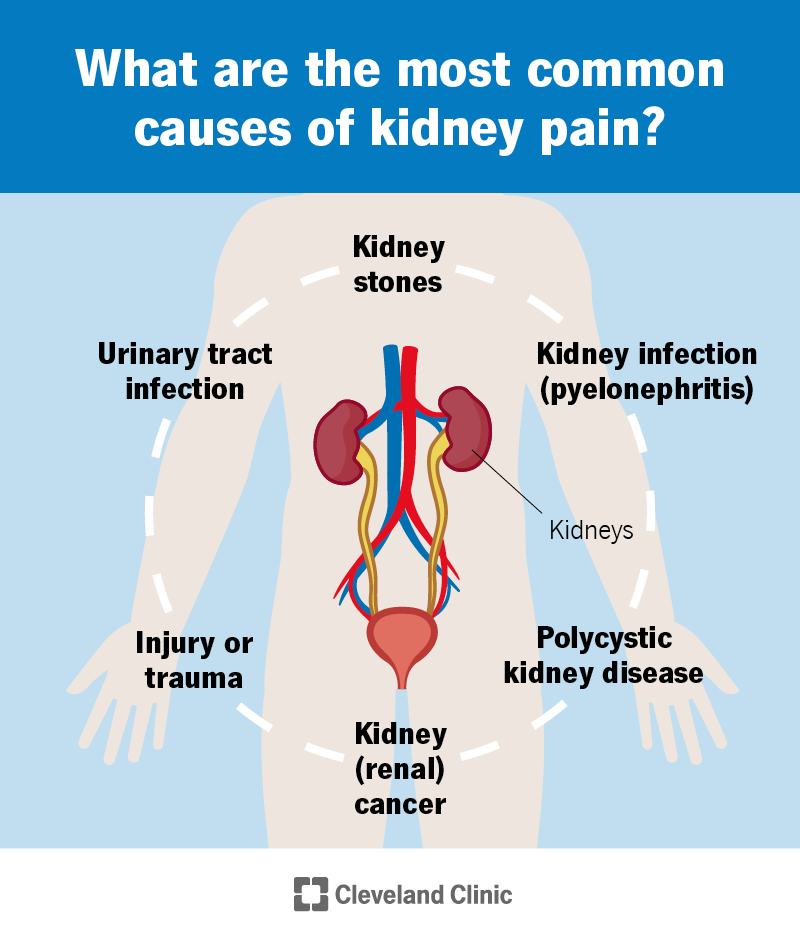Exactly how to Differentiate In Between Kidney Stones vs UTI: Secret Elements and Analysis Tips
Exactly how to Differentiate In Between Kidney Stones vs UTI: Secret Elements and Analysis Tips
Blog Article
Understanding the Secret Differences In Between Kidney Stones and Urinary System System Infections: A Thorough Introduction for Patients
Comprehending the distinctions in between kidney stones and urinary system infections (UTIs) is vital for clients who might be experiencing similar symptoms yet face greatly various health challenges. While both conditions can show up discomfort in the reduced abdomen or back, their underlying causes, analysis approaches, and therapy protocols diverge dramatically. A nuanced comprehension of these differences not just aids in accurate self-assessment yet additionally notifies conversations with doctor. As we discover these vital facets, it comes to be clear that acknowledging the unique attributes of each condition can profoundly impact client results. What could be the most effective strategy to dealing with these differences?
Review of Kidney Stones
The formation of kidney stones, a excruciating and typically debilitating problem, underscores the critical importance of preserving renal wellness. The key kinds of kidney stones include calcium oxalate, calcium phosphate, uric acid, struvite, and cystine stones, each with distinct reasons and threat factors.
Several elements contribute to the development of kidney stones. In addition, metabolic disorders and particular clinical problems might incline individuals to stone formation.
Signs of kidney stones can consist of extreme flank hematuria, pain, and queasiness, which commonly motivate immediate clinical evaluation. Treatment choices vary, varying from increased liquid intake and nutritional modifications to clinical interventions such as lithotripsy or surgical elimination, depending on the size and area of the stones. Recognizing these facets is necessary for effective avoidance and administration.
Overview of Urinary System Infections
Urinary system infections (UTIs) represent a typical yet significant wellness issue, affecting millions of individuals annually. These infections occur when microorganisms go into the urinary system, which consists of the kidneys, ureters, bladder, and urethra.
The threat factors for developing a UTI include sexual activity, specific kinds of birth control, urinary retention, and a history of previous infections. Straightforward UTIs are usually restricted to the bladder and are a lot more usual in healthy people, while difficult UTIs might include the kidneys and occur in those with underlying health and wellness problems.
Trigger medical diagnosis and treatment are important to protect against complications, such as recurring infections or kidney damages (Kidney Stones vs UTI). Generally, UTIs are treated with antibiotics, and precautionary procedures can be used for those with regular events
Common Signs And Symptoms Contrast
Symptoms of urinary tract infections and kidney stones can typically overlap, leading to confusion in medical diagnosis. In contrast, kidney stones have a tendency to create severe, sharp pain that radiates from the back to the reduced abdominal area and groin, commonly explained as colicky discomfort.
Furthermore, UTIs may be accompanied by fever and chills, specifically in much more extreme cases, while kidney stones can bring about queasiness and vomiting as a result of intense pain. Both problems can lead to blood in the pee (hematuria), yet the existence of blood is more generally connected with kidney stones. While pain during urination is a trademark of UTIs, kidney stones normally offer with more acute why not try these out discomfort episodes, which may go and come. Recognizing these symptom distinctions can help patients in acknowledging their problem, although clinical analysis stays essential for exact medical diagnosis and therapy.
Medical Diagnosis Techniques
Just how can medical care specialists precisely separate in between kidney stones and urinary system system infections? The analysis procedure starts with an extensive case history and an in-depth testimonial of the person's signs and symptoms. Clinicians frequently carry out a physical evaluation, which might disclose inflammation in the abdomen or flank area, guiding the diagnostic path.
Laboratory examinations play a crucial function in comparing these two conditions. Kidney Stones vs UTI. A urinalysis can determine the presence of blood, crystals, or microorganisms, which are indicative of either condition. In instances of urinary system tract infections, the urinalysis might show a substantial visibility of leukocyte and nitrites, while kidney stones may provide with specific crystals
Imaging researches, such as stomach ultrasound or computed tomography (CT) scans, are vital for visualizing kidney stones. These imaging techniques allow medical care carriers to assess stone size, place, and possible blockages in the urinary system system. On the other hand, urinary tract infections usually do not call for imaging unless issues are suspected.
Together, these analysis methods empower health care experts to accurately differentiate and detect in between kidney stones and urinary system system infections, guaranteeing that individuals obtain suitable care and management.
Treatment Alternatives and Prevention
While both kidney stones and urinary system system infections (UTIs) require punctual treatment, their management approaches vary considerably.
The treatment for kidney stones commonly entails discomfort management, hydration, and sometimes, clinical treatments such as extracorporeal shock wave lithotripsy (ESWL) read this article or ureteroscopy to damage or get rid of down stones. People are regularly recommended to raise liquid consumption to promote stone passage and lower reappearance. Nutritional adjustments might likewise be needed, depending on the stone kind.
In contrast, UTIs are mostly treated with anti-biotics to get rid of the bacterial infection. The particular antibiotic prescribed depends on the microorganisms identified and regional resistance patterns. Extra measures, such as boosted fluid intake and urinary system anesthetics, might assist relieve signs and symptoms.
Avoidance approaches vary too; for kidney stones, preserving adequate hydration and sticking to nutritional constraints can be efficient. For UTIs, preventative strategies include proper health methods, peing after intercourse, and possibly preventative antibiotics for persistent infections. Recognizing these therapy and prevention techniques is necessary for reliable monitoring and to decrease the risk of issues connected with both problems.
Conclusion

Understanding the differences in between kidney stones and urinary tract infections (UTIs) is necessary for people who may be experiencing similar symptoms yet encounter greatly various health and wellness challenges. The primary types of kidney stones consist of calcium oxalate, calcium phosphate, uric acid, struvite, and cystine stones, each with distinctive reasons and threat elements.

Report this page